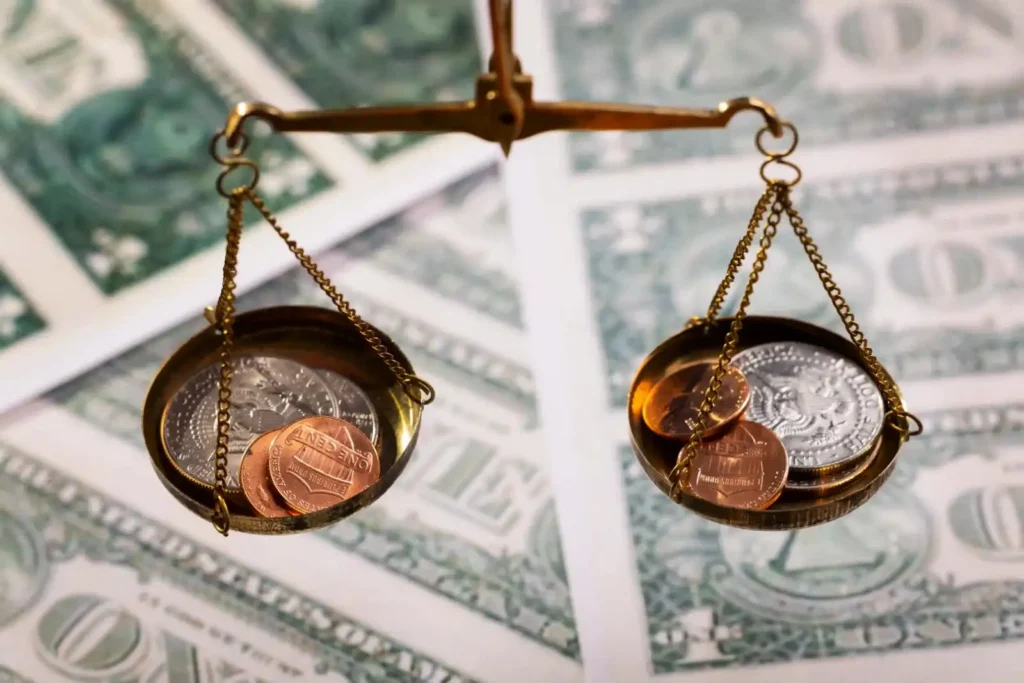Reboot Alert – Trump’s Talking Tariffs Again
Donald Trump is back in the spotlight, and so are his tariffs. He’s not holding back either, proposing a 10% blanket tariff on all imports and a whopping 60% on Chinese goods. If that sounds intense, it’s because it is. Markets are reacting, economists are concerned, and if you’re a business-minded young person, this isn’t something you can afford to ignore.
So, what will Trump’s tariffs do to the economy? Let’s break it down in simple terms, minus the fluff.
How Tariffs Work – And Why They’re Controversial
Tariffs are like taxes, but only on imported stuff. When a country slaps tariffs on foreign goods, it makes them more expensive. The goal? To get people to buy local instead. Sounds patriotic, right?
But here’s the catch: when one country throws the first punch, others usually punch back. That’s how you end up in a trade war. Countries go back and forth with taxes, and before you know it, the global economy is feeling the heat.
For businesses that rely on international suppliers, tariffs mean higher costs. And for regular folks like us, it means we pay more for everything from sneakers to smartphones. It doesn’t take long for the effects to snowball.
What Will Trump Tariffs Do to the Economy This Time?
Trump’s plan is all about reshaping trade relationships. But economists say it could bring more harm than good.
Let’s start with inflation. When the cost of importing goes up, businesses pass that cost onto consumers. That means prices rise. According to economists quoted in The Express Tribune, Trump’s new tariff proposal is fueling recession fears in the U.S. These aren’t just random worries. Big names in finance, like Harvey Schwartz from The Carlyle Group, are openly saying a recession is now “on the table.”
And then there’s job growth. As Bloomberg pointed out, policies like tariffs combined with immigration restrictions could slow down hiring and drive inflation even higher.
So, again: what will Trump tariffs do to the economy? Probably trigger price hikes, slow hiring, and potentially pull the U.S. into a recession. Not a great combo.
How This Could Impact Millennials, Freelancers, and Side Hustlers
If you’re part of Gen Z or a millennial trying to build your career, side hustle, or startup, you’re in the splash zone.
Higher prices for goods = higher costs for running your business. Whether you’re dropshipping, importing materials, or selling on Etsy, you’ll feel the pinch. If you’re freelancing, companies might tighten their budgets, which means fewer gigs.
And let’s not forget those working in retail, logistics, or tech. These sectors are super sensitive to global trends. If the economy slows down, hiring freezes, layoffs, and budget cuts follow.
Basically, if you’re hustling in any way, it’s time to watch the trade scene like your morning crypto charts.
The Pros and Cons of Trump Tariffs – Real Talk

Let’s not be dramatic. Tariffs aren’t evil. They have upsides too. Here’s the real tea:
Pros:
- Supports local businesses: With imports getting expensive, people might buy more American-made goods.
- Government revenue: The taxes collected can be used for stuff like infrastructure or education.
- Strategic leverage: Tariffs can be a pressure tool to renegotiate unfair trade deals.
Cons:
- More expensive stuff: Prices go up for both businesses and consumers.
- Trade wars: Countries retaliate, which can hurt exporters and escalate conflict.
- Slow economic growth: Businesses get nervous and delay hiring, investing, or expanding.
Now ask yourself: Are we in a position where these pros outweigh the cons? Most experts say no. Not right now.
What Will Tariffs Do to Our Economy in the Long Run?
Let’s zoom out. What will tariffs do to our economy in the next 5-10 years?
If this trade war keeps building, the U.S. could lose its competitive edge globally. Countries like China might double down on trade with Europe or Asia, leaving the U.S. isolated.
And remember: many U.S. companies don’t just sell to Americans. They export. Retaliatory tariffs on American goods could slam those companies hard. That means job losses, stock drops, and economic slowdown.
The IMF isn’t being loud about it, but they’re not thrilled. They’re worried this kind of tariff-first policy could weaken the global trade network and strain relationships with allies. It’s not just about money, it’s about influence.
The Takeaway – Next Move as a Business-Minded Young Person
Stay informed and adaptable. Monitor how tariffs affect your industry and adjust your strategies accordingly. Consider diversifying your supply chains and exploring domestic alternatives.
If you’re a freelancer or side hustler, communicate with clients about potential cost changes and seek opportunities in industries less affected by tariffs.
For millennials entering the workforce, focus on building skills that are in demand regardless of economic fluctuations. Flexibility and resilience are key in navigating these uncertain times.Reboot Alert – Trump’s Talking Tariffs Again
Donald Trump is back in the spotlight, and so are his tariffs. He’s not holding back either, proposing a 10% blanket tariff on all imports and a whopping 60% on Chinese goods. If that sounds intense, it’s because it is. Markets are reacting, economists are concerned, and if you’re a business-minded young person, this isn’t something you can afford to ignore.
So, what will Trump’s tariffs do to the economy? Let’s break it down in simple terms, minus the fluff.
How Tariffs Work – And Why They’re Controversial
Tariffs are like taxes, but only on imported stuff. When a country slaps tariffs on foreign goods, it makes them more expensive. The goal? To get people to buy local instead. Sounds patriotic, right?
But here’s the catch: when one country throws the first punch, others usually punch back. That’s how you end up in a trade war. Countries go back and forth with taxes, and before you know it, the global economy is feeling the heat.
For businesses that rely on international suppliers, tariffs mean higher costs. And for regular folks like us, it means we pay more for everything from sneakers to smartphones. It doesn’t take long for the effects to snowball.
What Will Trump Tariffs Do to the Economy This Time?

Trump’s plan is all about reshaping trade relationships. But economists say it could bring more harm than good.
Let’s start with inflation. When the cost of importing goes up, businesses pass that cost onto consumers. That means prices rise. According to economists quoted in The Express Tribune, Trump’s new tariff proposal is fueling recession fears in the U.S. These aren’t just random worries. Big names in finance, like Harvey Schwartz from The Carlyle Group, are openly saying a recession is now “on the table.”
And then there’s job growth. As Bloomberg pointed out, policies like tariffs combined with immigration restrictions could slow down hiring and drive inflation even higher.
So, again: what will Trump’s tariffs do to the economy? Probably trigger price hikes, slow hiring, and potentially pull the U.S. into a recession. Not a great combo.
How This Could Impact Millennials, Freelancers, and Side Hustlers
If you’re part of Gen Z or a millennial trying to build your career, side hustle, or startup, you’re in the splash zone.
Higher prices for goods = higher costs for running your business. Whether you’re dropshipping, importing materials, or selling on Etsy, you’ll feel the pinch. If you’re freelancing, companies might tighten their budgets, which means fewer gigs.
And let’s not forget those working in retail, logistics, or tech. These sectors are super sensitive to global trends. If the economy slows down, hiring freezes, layoffs, and budget cuts follow.
Basically, if you’re hustling in any way, it’s time to watch the trade scene like your morning crypto charts.
The Pros and Cons of Tariffs – Real Talk
Let’s not be dramatic. Tariffs aren’t evil. They have upsides too. Here’s the real tea:
Pros:
- Supports local businesses: With imports getting expensive, people might buy more American-made goods.
- Government revenue: The taxes collected can be used for stuff like infrastructure or education.
- Strategic leverage: Tariffs can be a pressure tool to renegotiate unfair trade deals.
Cons:
- More expensive stuff: Prices go up for both businesses and consumers.
- Trade wars: Countries retaliate, which can hurt exporters and escalate conflict.
- Slow economic growth: Businesses get nervous and delay hiring, investing, or expanding.
Now ask yourself: Are we in a position where these pros outweigh the cons? Most experts say no. Not right now.
What Will Tariffs Do to Our Economy in the Long Run?
Let’s zoom out. What will tariffs do to our economy in the next 5-10 years?
If this trade war keeps building, the U.S. could lose its competitive edge globally. Countries like China might double down on trade with Europe or Asia, leaving the U.S. isolated.
And remember: many U.S. companies don’t just sell to Americans. They export. Retaliatory tariffs on American goods could slam those companies hard. That means job losses, stock drops, and economic slowdown.
The IMF isn’t being loud about it, but they’re not thrilled. They’re worried this kind of tariff-first policy could weaken the global trade network and strain relationships with allies. It’s not just about money, it’s about influence.
The Takeaway – Next Move as a Business-Minded Young Person
Stay informed and adaptable. Monitor how tariffs affect your industry and adjust your strategies accordingly. Consider diversifying your supply chains and exploring domestic alternatives.
If you’re a freelancer or side hustler, communicate with clients about potential cost changes and seek opportunities in industries less affected by tariffs.
For millennials entering the workforce, focus on building skills that are in demand regardless of economic fluctuations. Flexibility and resilience are key in navigating these uncertain times.







0 Responses